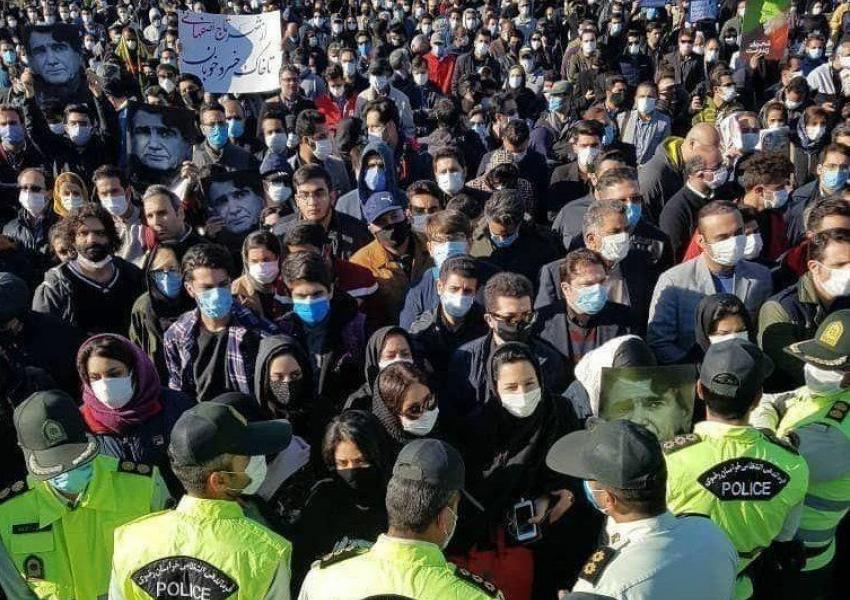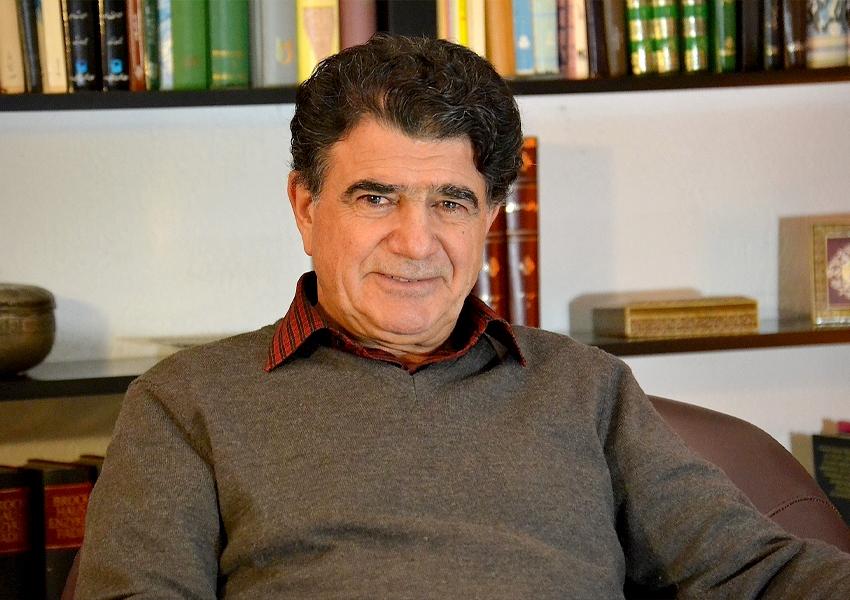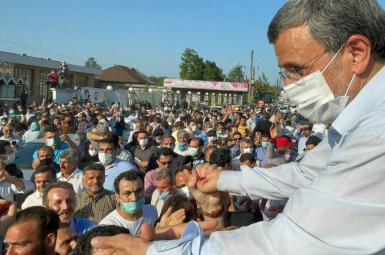
Khamenei Remains Silent As Shajarian Is Laid To Rest Beside Ferdowsi
By Maryam Sinaiee
Iran’s great singer Mohammad Reza Shajarian, who passed away in Tehran on Thursday aged 80, was buried on Saturday morning in the Mausoleum of Ferdowsi, Iran’s national poet, in Tous.
Wary of mourners protesting, security forces prevented many who had arrived in Tous from attending the burial ceremony in the pale stone mausoleum. Videos posted on Twitter showed road blocks near the village and the park housing the mausoleum, where some mourners had been present since Friday.
Shajarian was buried in Tous reportedly according to his own will. The ancient settlement known as Susia to Greek historians lies 35 km to the northwest of the provincial capital Mashhad. The mausoleum is a modern structure erected in 1930s where Ferdowsi, author of the epic ‘Book of Kings’ (‘Shahnama’), was buried in 1019 AD.
The six-hectare garden of the mausoleum compound is also the resting place of Mehdi Akhavan-e-Sales, a modern poet hailing from Mashhad where Shajarian was also born. Being allowed to be buried at the compound is a great honor the authorities could not deny to a singer affectionately called ‘The Maestro’ or ‘The King of Iran’s Song-masters.’ Only three people are now buried there.
Mohammad Reza Shajarian. Undated photo

During the committal, the family and others allowed to attend held hands and sang Shajarian’s song ‘Morgh-e Sahar’ [‘The Dawn Bird’], an ode to freedom and revolution written by poet-politician Mohammad-Taghi Bahar in 1927.
The governor and mayor of Mashhad, a city of religious importance famous for its conservatism, attended the funeral. High-ranking government officials such as the minister of culture were absent, even though President Hassan Rouhani, who adopted Shajarian’s songs in his 2013 and 2017 election campaigns, ventured a message of condolence immediately after the announcement of Shajarian’s demise and several ministers followed suit.
Supreme Leader Ali Khamenei has remained silent. While many Islamists, especially in the early years after the 1979 Revolution, have expressed disdain for music and musicians, Khamenei may have a political motivation for ignoring the singer’s passing: Shajarian was seen joining chants of ‘Down with the Dictator’ during protests after the disputed presidential election of 2009.
“The protesting nation is not really so keen on hearing [Khamenei's] condolences," Morad Veisi, Iran International’s political analyst wrote in a Tweet. “The demise of Shajarian demonstrated the massive chasm between the people and the Supreme Leader and made it even deeper.”








